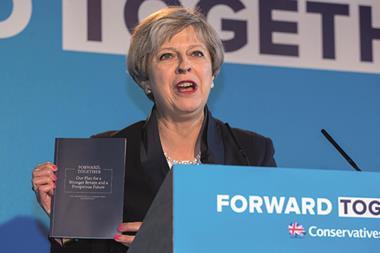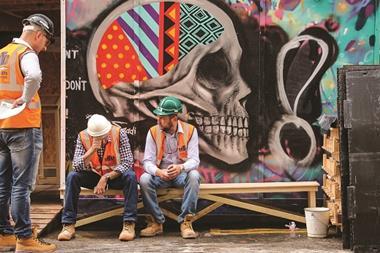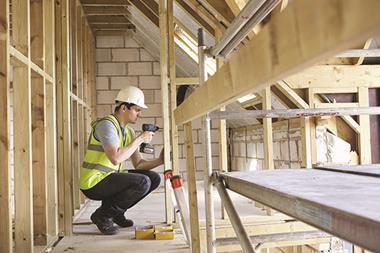At the start of 2017, many commentators looked across the channel at the series of impending national elections - in France, the Netherlands and Germany - and noted the uncertainty they posed.

Yet despite the political turmoil also seen in this country over the past year, no one anticipated a hung parliament in the UK.
So what does it mean for real estate, especially residential? First, it’s worth stepping back and briefly considering why the country delivered an unexpected result.
A lot has been said about the surge in young voters. Unconfirmed estimates put turnout among 18-to-24-year-olds at 72% - a figure which, if corroborated, would be nearly double the previous general election.
But it goes deeper than that. In a snap analysis of 14,000 voters on polling day by Lord Ashcroft, while Brexit and the NHS dominated intentions, it was striking how issues such as poverty and public spending were on a par with the economy and jobs for some voters.
Perhaps housing concerns are finally starting to manifest themselves in voting intention
It would be remarkable if, as more analysis is done, housing wasn’t found to be a key issue among young voters. Projections indicate that 3.8m people aged 21 to 34 will be living with their parents by 2025 - a million more than today.
Moreover, the number of young homeowners has halved since the 1990s. Certainly, housing costs were frequently cited among voters in the run-up to the election. Perhaps housing concerns are finally starting to manifest themselves in voting intentions. It will certainly have a lasting impact.
So what next? With the caveat that at the time of writing the formal arrangements with the DUP were still emerging and some key ministers hadn’t been announced, I offer three thoughts.
Radicalism and regeneration
First, there’s a clear tension. On the one hand, there needs to be a radical programme to regenerate cities and build more homes to reflect the sense of public disquiet and divisions exposed at the ballot box. On the other hand, there are the limits of minority government and pressing issues such as Brexit and national security.
It’s easy to write that we need renewed boldness, a sense of urgency, energy and imagination to tackle the housing crisis against this backdrop. Yet we do, otherwise the country won’t be able to address the deep social, inter-generational and geographical divisions that this election has exposed.
The fact that new chief of staff Gavin Barwell, who understands housing and planning, is now one of the closest advisers to the prime minister, will help these issues get the attention they deserve.
A sense of urgency, energy and imagination to tackle the housing crisis [emerged] against this backdrop
Even before the election, there was a clear blueprint set out in the housing white paper. Communities secretary Sajid Javid, who oversaw it, is back in post. Much of this plan could be implemented without legislation, although reports suggest there may be some housing measures in the Queen’s Speech.
It is important that reforms - such as simplifying the local plan process, identifying more land, diversifying the market and driving density while championing quality - are pursued. Tackling other issues, such as homelessness and failures in the private rented sector, are also critical to delivering the immediate change that many voters have signalled they want.

Second, there appears to be an appetite for more activist government and for less austerity. This could benefit housing and regeneration with a proactive approach to assembling land (new measures on compulsory purchase orders have recently been introduced), enabling schemes through targeted investment and aligning regeneration with infrastructure, especially big transport improvements.
Finally, let’s not forget the other ballot in recent weeks: six new metro mayors. Together with London, many of those mayors, notably in the West Midlands, have housing at the heart of their agendas. Increasingly, this tier of government is driving forward regeneration. It makes sense to continue to devolve and give them a greater role, working alongside government, to transform their areas.
Ahead of this election, the industry wanted more certainty so it could get on and deliver, yet a stable political landscape is proving elusive. While we wait for the government to set out its macroeconomic policies, the foundations for building more homes and regenerating our towns and cities are there and the fundamentals driving regeneration remain as pressing as ever.
It could be that this current period provides the impetus needed to finally get to grips with both the housing crisis and long-term regeneration.





























No comments yet